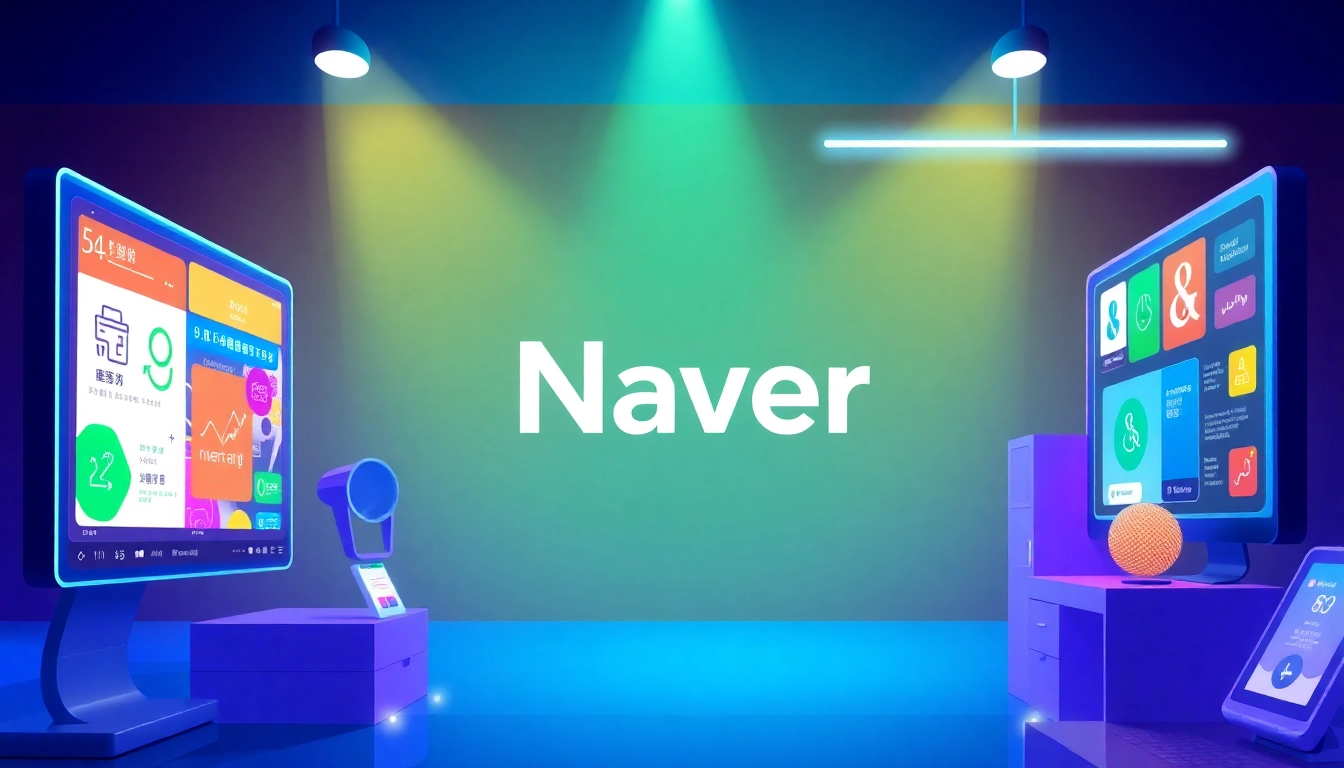Understanding Technology: Definition and Scope
What is Technology?
Technology is defined as the application of scientific knowledge to practical problems. It involves the use of tools, machines, and systems to solve challenges and improve efficiency across various sectors—including industry, engineering, and even day-to-day activities. Essentially, technology is the bridge that links theoretical science with real-world utility, enabling innovations that affect our daily lives profoundly. A more concrete definition states that it is centralized around “the use of science in solving problems,” a concept that underpins the essence of technological advancement. To delve deeper into this pivotal concept, one can refer to resources that explore the various dimensions of technology.
The Evolution of Technology
The evolution of technology is a historical journey shaped by human curiosity and the desire for improvement. From the earliest tools made of stone used by our ancestors, to the advanced computer technologies of today, this journey can be categorized into several critical phases:
- Prehistoric Times: Use of simple tools and fire.
- Ancient Civilizations: Development of agriculture, metallurgy, and early engineering.
- Middle Ages: Innovation of machinery such as the watermill and windmill.
- Industrial Revolution: Mechanization and the rise of factories changed production methods forever.
- Information Age: The introduction of computers and the internet has revolutionized communication and access to information.
This ongoing evolution shows a clear trajectory towards more complex, efficient, and integrated technological solutions that continue to shape human existence across various domains.
Types of Technology in Our Daily Lives
Technology manifests in various forms, influencing multiple aspects of our lives. Here are several key types:
- Communication Technology: This includes smartphones, email, and social media platforms that keep us connected.
- Health Technology: Innovations such as telemedicine, wearable health monitors, and advanced diagnostic equipment facilitate better health management.
- Transport Technology: From electric vehicles to public transport systems, technology improves mobility and accessibility.
- Information Technology: Computers and software systems play a vital role in managing data across industries.
- Environmental Technology: Solutions aimed at addressing ecological challenges, such as renewable energies and pollution-reduction technologies.
The Role of Technology in Modern Society
Impact of Technology on Communication
The rise of technology has fundamentally transformed communication, making it instantaneous and global. Where letters once took days or weeks to traverse distances, today’s digital communication, through emails and instant messaging, can occur in mere seconds. Social media platforms like Facebook and Twitter allow individuals to share opinions, news, and ideas with a vast audience almost instantaneously. Additionally, video conferencing tools have revolutionized the business landscape by enabling remote work and virtual meetings, increasing productivity and collaboration across global teams.
Technology in Education and Learning
Technology has reshaped educational modalities through online learning platforms such as Coursera and Khan Academy, making quality education more accessible than ever. Interactive tools and resources help educators personalize learning experiences, while technologies like augmented reality (AR) and virtual reality (VR) offer immersive learning experiences that can enhance engagement and retention of information. The integration of AI in education promises to provide tailored learning experiences, adapting content to meet individual student needs.
Health Technologies Advancements
In the realm of health, technological advancements have led to remarkable developments in diagnostics, treatment, and patient care. Telemedicine allows healthcare providers to consult patients remotely, increasing access to medical care, especially in rural areas. Wearable devices monitor health metrics in real-time, enabling personalized healthcare management. Moreover, AI and machine learning are being leveraged to analyze complex medical data, leading to enhanced prediction and prevention of diseases, and even personalized medicine based on genetic information.
Challenges and Risks of Technological Advancements
Cybersecurity Threats and Solutions
While technology has delivered numerous benefits, it has also introduced serious cybersecurity challenges. The increasing interconnectedness provided by the Internet of Things (IoT) creates vulnerabilities that malicious actors can exploit. Protecting sensitive data requires robust cybersecurity frameworks that include encryption, firewalls, and continuous monitoring. Companies are also investing heavily in cybersecurity training for employees, recognizing that human error remains a critical risk factor.
Ethical Concerns in Technology Usage
The ethical implications of technology are a topic of ongoing debate. Issues such as data privacy, surveillance, and the algorithmic bias of AI systems necessitate careful oversight and regulation. For example, the use of facial recognition technology raises concerns about privacy violations and civil liberties, leading to calls for stricter regulations and transparency in how such technologies are deployed. As society becomes increasingly dependent on technology, establishing ethical standards becomes imperative to ensure the responsible use of these powerful tools.
Environmental Impact of Technology
Technological advancements often come at an environmental cost, with e-waste, energy consumption, and resource depletion being significant concerns. The production and disposal of electronic devices can lead to toxic waste and pollution. However, technology also offers solutions to these problems—green technologies are being developed to reduce energy consumption and enhance sustainability in various sectors. Initiatives like clean energy technologies and sustainable manufacturing processes aim to reduce the ecological footprint associated with technological devices and systems.
Innovations Shaping the Future of Technology
Artificial Intelligence and Machine Learning
AI and machine learning are at the forefront of technological innovation, driving incredible advancements across industries. From autonomous vehicles to smarter customer service chatbots, AI algorithms learn from data, enabling machines to perform tasks without human intervention. Businesses are leveraging these technologies to enhance decision-making processes, optimize operations, and improve customer experiences. The future holds significant potential for AI to revolutionize areas such as healthcare, where predictive analytics can facilitate earlier disease detection.
Blockchain Technology Explored
Blockchain technology has been primarily associated with cryptocurrencies like Bitcoin, but its applications extend far beyond that. This decentralized digital ledger provides unprecedented security and transparency, making it useful in diverse fields—from supply chain management to healthcare. Blockchain can ensure the integrity of transactions, facilitate tracing the provenance of products, reduce fraud, and enhance trust among stakeholders. As industries seek greater accountability and efficiency, blockchain adoption is expected to grow dramatically in the coming years.
Green Technology Initiatives
As global awareness of climate change increases, green technology initiatives are becoming critical in mitigating environmental impacts. Innovations in renewable energy, such as solar and wind technology, provide sustainable alternatives to fossil fuels. Energy-efficient systems, eco-friendly materials, and waste recycling technologies contribute to a circular economy that minimizes waste and maximizes resource efficiency. Such initiatives not only aim to protect the environment but also create new economic opportunities and jobs in the green sector.
How to Stay Updated on Technology Trends
Following Leading Technology Publications
Keeping pace with technology entails regular consumption of industry news and analysis. Leading technology publications like MIT Technology Review and Wired offer insights into emerging trends and groundbreaking innovations. Subscribing to newsletters and alerts from trusted sources can help individuals and organizations stay informed about the latest developments impacting their sectors.
Participating in Technology Conferences
Active engagement in technology conferences can provide valuable insights and networking opportunities. Events like CES (Consumer Electronics Show) and TechCrunch Disrupt showcase groundbreaking technologies and facilitate discussions among thought leaders. Attending these conferences allows participants to gain firsthand knowledge of innovations and insights on future trends that may influence various industries.
Online Resources for Continuous Learning
The digital landscape is filled with resources designed for continuous learning. Platforms such as Coursera, Udacity, and edX offer courses on a plethora of technology-related topics, ranging from coding to data science and beyond. Participating in webinars, workshops, and online forums can also provide ongoing education and skills development that is crucial to stay competitive in an evolving job market.


